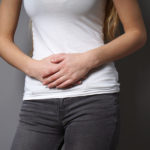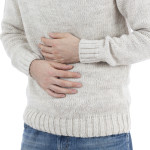By David Blyweiss, M.D., Advanced Natural Wellness
July 10, 2013
- Why your bowels slow down and how you can keep them moving
- Why you shouldn’t fall for the great fiber hoax
- When to turn to the natural solution of last resort
Several years ago I trekked into the African jungles with members of a local pygmy tribe. Not long after we started our journey, one of the men squatted in the brush to evacuate his bowels, then immediately rejoined the group.
When I asked him what he used for toilet paper he and it took several minutes for him to explain it to me. But I finally got the gist of it.
You see, when your digestive system and bowel movements work the way nature intended, your stool looks like a long, smooth snake or sausage. It’s easily expelled. And once the process is complete, the sphincter automatically pinches it off… without leaving any residue.
Now, this is something that’s almost unheard of here in the U.S.
Americans have more than their share of problems with their bowels. For the most part, bowel movements aren’t quick, they often involve straining and they almost always leave a trail of sticky residue on the hind-cheeks.
Believe me! I hear about it all the time.
Open your arteries, improve blood flow for a new health miracle...
Did you know your circulatory system has over 60,000 miles of arteries, veins and other blood vessels, if stretched end to end?
But as you age, your blood vessels undergo changes, which may cause them to stiffen, thicken and get clogged.
GOOD NEWS! Doctors have now identified a “Miracle Molecule” inside your arteries that helps OPEN your arteries and IMPROVE blood flow.
It’s what Dr. Valentin Fuster calls it, "One of the most important discoveries in the history of cardiovascular medicine."To you, that means...
- Healthy blood pressure
- Sharper mind and memory
- Skyrocketing energy and muscular strength
- Increased pleasure and passion in the bedroom
- Improved circulation to every cell and organ in your body
Go here to discover a new natural way to significantly boost the levels of this miracle molecule in YOUR body NOW!
Some of my patients haven’t had a good bowel movement in days. They are bound-up and constipated. Others constantly experience loose and runny stool that has them running to the can more often than they would like. And in both cases, clean-up requires plenty of toilet tissue and wet-wipes.
Now here’s the really weird thing about it.
You would think digestive disorders like these would be most common in third world countries. But that’s just not the case.
Problems like inflammatory bowel disease (IBD,) irritable bowel syndrome (IBS,) diarrhea and constipation are more common in developed countries, like the U.S.
And a big part of it can be attributed to eating a “Western” diet that’s destroying our digestive process.
This may explain why Americans spent $875 million dollars on over-the-counter laxatives and an additional $144 million on anti-diarrheal medications in 2011. In other words, we spend over a billion dollars each year to make sure we have a good and proper poop.
These numbers don’t even include the money spent on natural remedies or prescription drugs for these problems.
So what’s really going on here?
Are You Suffering From...
- Love handles and a pot belly
- Romance that isn't what it used to
- Forgetfulness and inattention
- Low (or no) strength and endurance
- A sex drive that's shifted into neutral...or worse
If so...you may have Mature Male Burnout. Click here to discover more about this unique condition and what you can do about it.
If you’re constipated, your first line of defense might be to add a fiber supplement. And if that doesn’t work, you may decide to head for the laxative aisle at the drugstore.
Here are two things you should know.
- Psyllium, which is the most commonly-used form of fiber sold over-the-counter for constipation isn’t absorbed by the small intestine. In fact, it doesn’t even occur naturally in the diet. It’s grown and sold only as a fiber additive. And that’s a problem. In the end, if you bulk up on non-soluble fiber, and then pass it through, you still aren’t having the healthy bowel function you need.
- Stimulant laxatives, like Ex-Lax, don’t “fix” anything either. They might give you one or two big bowel movements, but once you quit taking it you are right back where you started – or worse! You see, overuse of stimulant laxatives can create a dependency. When this occurs, you might not be able to have a bowel movement without taking a laxative.
Of course, diarrhea has its own common cures. The first thing you probably reach for is the Pepto-Bismol or Kaopectate. But once again these are stop-gaps and don’t do anything to address the underlying problem.
When you’re tempted to reach for one of these quick solutions, it’s important to understand that bowel movements aren’t one time events. Your body is constantly evacuating digested foods, dead (and living) bacteria, mucus and other bodily waste.
In other words, what you put into your body to start with is going to count– a lot – when it comes to what happens on the other end. Garbage in, garbage out.
So what garbage might be going into your body?
Too many sugars and carbs. Many people suffer from something called “sugar” or “carbohydrate” malabsorption. And ingestion of these high glycemic and sugary foods is closely linked with irritable bowel syndrome and other bowel complaints.
In one study of people with bowel problems, 90% of the participants had malabsorption of at least one type of sugar. Other research shows when carbs are reduced to less than 4% of total caloric intake, bowel movements in IBS patients return to normal.
Gluten is an elastic protein found in wheat, spelt, barley and rye. And in many people, the immune system treats it as a toxin. This reaction is an autoimmune disorder called celiac disease. Well-known symptoms include diarrhea, occasional constipation, smelly stool and a whole host of other problems. But here’s the thing… for every person with celiac, experts believe there may be many more who have non-celiac gluten intolerance.
Milk from cows contains a form of sugar called lactose. And it may surprise you to learn about 25% of the American population is lactose intolerant. This means somewhere between 30 and 50 million people can’t break-down and digest the sugars in cow’s milk. Instead, it causes gas, bloating and diarrhea.
Here’s what I suggest…
Your body has absolutely no use for processed foods loaded with empty carbs and sugars. All these foods are going to do is clog-up the normal functions in your body. And I’m not just talking about the feces. They’ll also clog your arteries, glucose metabolism and brain function.
But there are foods that contain naturally complex carbohydrates. And they are also loaded with soluble fiber to help truly cleanse your intestines. Just take a look at these tips…
Add plenty of fiber-rich beans, fruits and veggies to your diet. The goal is to consume 35 grams of fiber each and every day. And this fiber can be found in fruits, vegetables, beans and nuts. But don’t try to eat the whole 35 grams immediately or you might end up with gas and diarrhea. Instead, gradually increase the amount of fiber you eat over a couple of weeks to help slowly encourage healthy bowel movements.
Just say no to gluten. While you may not have celiac disease, more and more people today have gluten sensitivity, a condition known as non-celiac gluten intolerance. This can lead to some serious gut problems and interfere with bowel movements. Some experts even suggest irritable bowel syndrome is symptom of gluten sensitivity.
Gluten is a protein found in grains such as wheat, barley, rye and any foods made with these grains. You’ll find glutens in baked goods (like bread and cereal,) gravies, pasta, soups and salad dressings.
But you don’t have to give up grains altogether. Some gluten-free grains you can check out include amaranth, buckwheat, millet and quinoa. Make sure to check out my article “What to Eat Instead of Wheat” to find my recommended replacements.
Stop drinking cow’s milk. Besides us humans there is no other species (other than baby cows) that drinks cow’s milk. There’s a reason for that. Every mammal’s milk is specifically designed for its young.
Our bodies weren’t meant to handle the lactose found in this type of dairy product. When researchers administered lactose to patients with IBS and bowel complaints, 78% of them turned out to be lactose intolerant. Try almond milk instead.
I also suggest drinking plenty of water, getting daily exercise and keeping stress levels in check with yoga, meditation or even “quiet time.”
A good probiotic with added digestive enzymes can also help while you are transitioning to healthier eating habits.






